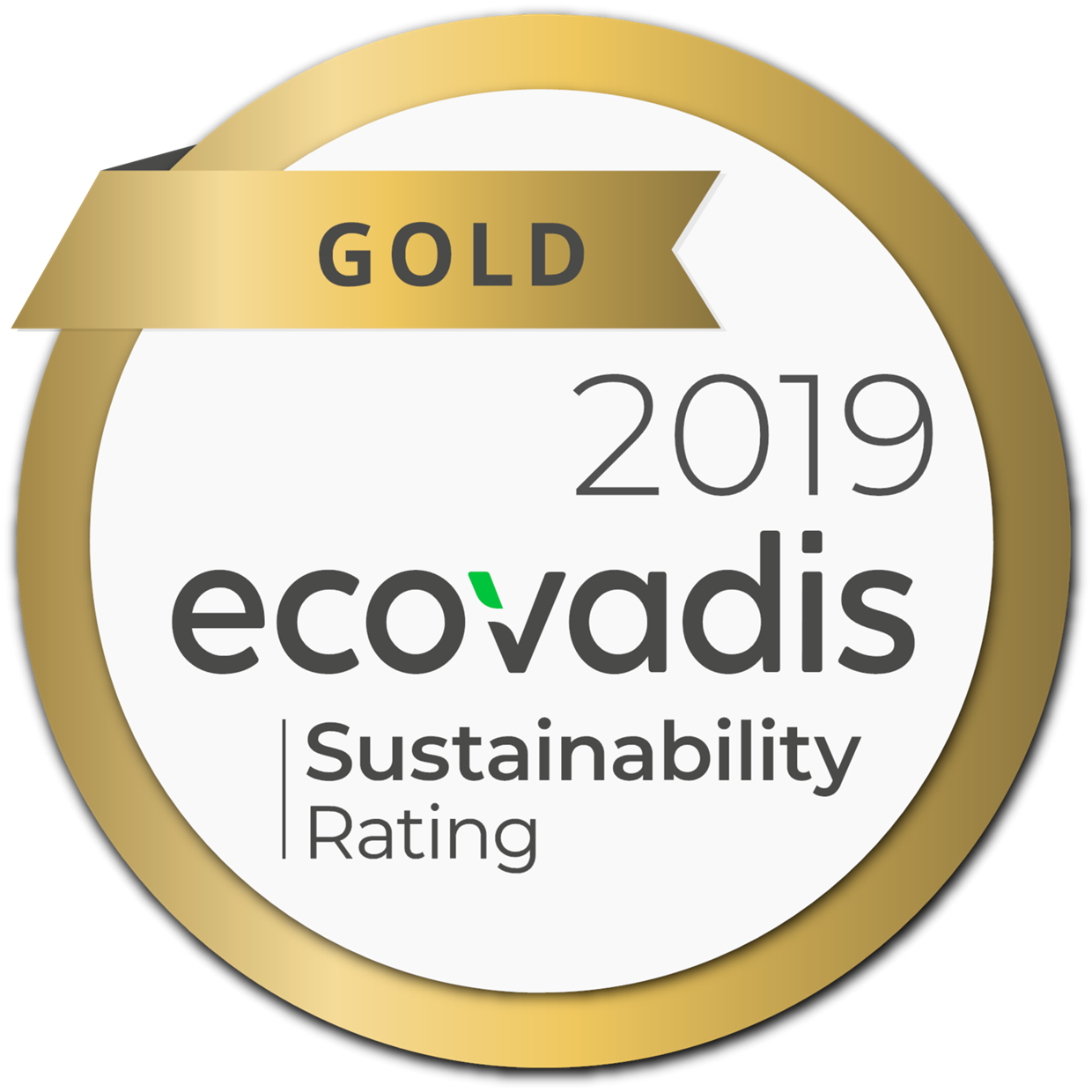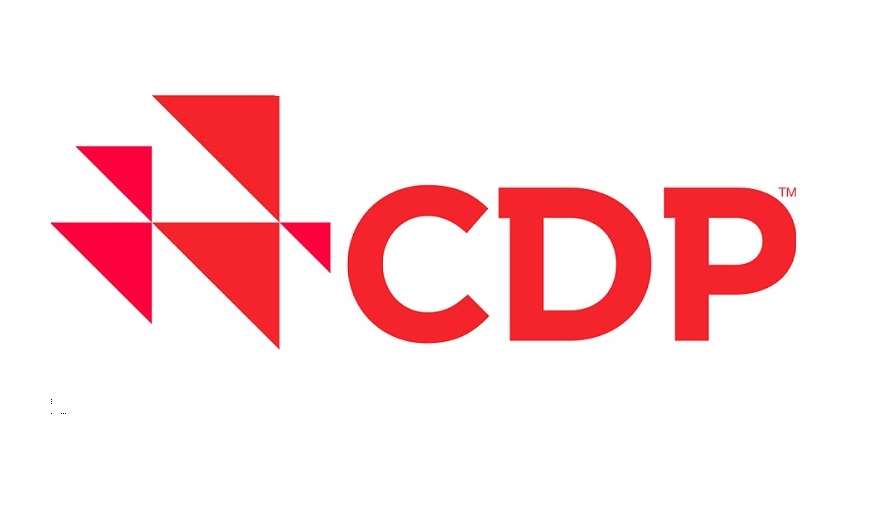Strategy
8 mindormakaba defines sustainability as one of the key success factors to being recognized as the trusted industry leader. That is why sustainability is one of the two foundations of the company’s business strategy.
dormakaba strives to promote sustainable development along the value chain as part of our economic, environmental and social responsibility toward current and future generations. We commit to an open and transparent dialogue with stakeholders to define strategies and actions based on clear goals and continuous improvements. We adhere to the precautionary principle as the foundation of sustainability. Negative impacts on the environment and health should be avoided in advance to the greatest extent possible by all employees in all business activities. This approach is set out in our Code of Conduct that outlines our values, principles, standards and norms of behavior.
Materiality
Our material topics were defined in the course of a comprehensive materiality assessment and are valid for the years 2017–2021. They have been aligned to the four focus areas of our sustainability strategy: Transparency, Process & Production, People and Products. Full details on the materiality process are found in the Outro.
Our focus areas
Transparency – We are committed to being a socially responsible corporate citizen and to upholding the principles of international conventions, laws and internal rules and regulations. We also expect our suppliers and business partners to adhere to similar standards and rules.
Process & Production – We seek to reduce the environmental impact of production and adhere to environmental laws and regulations. We strive to ensure a healthy and safe workplace and to safeguard our customers’ rights to privacy and security.
People – We offer fair working conditions in which our employees can leverage their strengths and build their skills. We foster an engaged workforce where we have the right people in the right roles.
Products – We are dedicated to producing high-quality, reliable products and solutions, as well as supporting the health and safety of end users through good practice in product development. We aim to reduce our customers’ environmental burdens by designing material- and energy-efficient products.
Strategic targets
In line with this strategic approach, dormakaba has committed to achieving seven overarching sustainability goals in our corporate strategy as follows:
Target |
| Deadline |
| Financial year 2019/20 |
| Status |
Meet target submission requirements as part of the commitment to the Science Based Targets initiative |
| September 2020 |
| Scope 3 carbon inventories developed; 92% Scope 1 and Scope 2 emissions reported |
| p10 |
Reduce Scope 1 and 2 carbon emissions by 5% tCO2e (baseline 2017/18) |
| End of financial year 2020/21 |
| -15%* |
| p9 |
Increase the share of ISO 14001 certified production sites to >50% (baseline 2017/18) |
| End of financial year 2020/21 |
| 36% |
| p7 |
All manufacturing sites maintain health & safety management systems based on ISO 45001 or OHSAS 18001 |
| End of financial year 2021/22 |
| 73% |
| p7 |
All manufacturing sites maintain energy management systems based on ISO 50001 |
| End of financial year 2021/22 |
| 21% |
| p2 |
Increase the revenue share of products with environmental and/or health product declarations to >30% |
| End of financial year 2020/21 |
| 19% |
| p7 |
Operationalize a supplier audit system based on sustainability criteria |
| End of financial year 2020/21 |
| 475 suppliers invited for EcoVadis assessment; Procedures for non-participation and non-compliance approved |
| p8 |
*Of which 9 pp. are attributable to increased purchase of green electricity and energy efficiency projects, and the rest due to various factors including the business impact of Covid-19.
We are on track with several of our sustainability targets, particularly on our commitment to reduce carbon emissions, and in operationalizing a supplier sustainability audit system. For the latter, we have defined escalation processes for non-compliance of the Supplier Code of Conduct and for non-participation in our supplier engagement program, which we will roll out in the financial year 2020/21. In addition, we have met the target submission requirements of the Science Based Targets initiative (SBTi) as planned. We had also expected to submit our long-term reduction targets for Scope 1, 2 and 3 carbon emissions by September 2020, but the impact of the Covid-19 pandemic has posed challenges in terms of baseline setting. This has been discussed with the SBTi, and we do expect to have the reduction targets validated by them within the financial year 2020/21.
Of the further targets set to expire at the end of the financial year 2020/21, namely the aim to increase the share of ISO 14001 certified production sites and the aim to increase revenue share of products with environmental and/or health product declarations, we have seen marginal improvements. However, with the implementation of the planned initiatives in the financial year 2020/21, we believe we will achieve or be near achievement of the targets.
For both remaining targets, expiring at the end of the financial year 2021/22, we continue to have work to do. Based on current planning, achieving the target related to energy management systems will be particularly challenging. This is due in part as many smaller manufacturing facilities such as local distribution centers or local assembly centers lack the technical know-how and resources for setting up such management systems. In addition, some sites are focusing on other sustainability targets first.
Sustainability governance
In the financial year 2019/20, the sustainability governance and organization were defined in a formal Sustainability Charter, with the aim to improve strategy and resource planning as well as monitoring of progress against targets and accountability across all levels of the company. The most fundamental changes include:
- The Board of Directors is responsible for reviewing and approving the overall sustainability governance framework, and the Chairperson of the Board is explicitly responsible for monitoring sustainability strategy implementation progress against targets and for evaluating and monitoring sustainability risks and opportunities.
- A newly formed Group Sustainability Council is a cross-functional body of senior management representatives of Group and segment business functions relevant to the company’s material topics and is chaired by the Chief Executive Officer.
An overview of the dormakaba sustainability organization is found below. Further duties, authorities and reporting channels for the various bodies are set in the Sustainability Charter.
Sustainability organization
Stakeholder dialogue and partnerships
dormakaba attaches great importance to regular contact and ongoing dialogue with our stakeholders at both the local and global level. We consider the close involvement of our stakeholders to be an asset in our ongoing efforts and therefore pursue a goal of creating better mutual understanding, based on trust, to enhance our partnerships and collaboration.
Increasingly, customers, partners and end users in the building industry are demanding environmentally friendly products, giving rise to new market opportunities. At the same time, responsible business practices are demanded by legislators and investors as well as employees.
In order to identify and select stakeholder groups for dialogue, we held workshops with internal experts in the financial year 2015/16. Specific target groups were selected depending on the aims of the stakeholder engagement. As an example, a high-level segmentation of customer stakeholder groups was validated based on input from country managers in the frame of our annual brand tracking survey. In another example, stakeholders for the Human Rights dialogues held in the financial year 2018/19 were selected based on relevance of the job function, such as Health and Safety Managers or authors of related policies such as the Supplier Code of Conduct.
In the financial year 2019/20, two sustainability elements were included in the brand tracking survey, namely as to the importance of taking care of the environment and acting socially responsible. Of the nearly 2,280 respondents, 40% stated that it was very important to them that access and security solutions suppliers take care of the environment, with another 39% stating it was very important that they act socially responsible. For both elements, another 30% stated it was somewhat important. The dormakaba brand was associated more positively than other brands in 5 of our 8 product clusters for these two elements.
Stakeholder |
| Key topics and concerns |
| Platforms |
| Grievance mechanisms |
Employees |
| Employment practices and benefits, occupational health and safety, sustainable business practices, environmentally safe production processes |
| dormakaba dialogue survey, bilateral meetings with local Human Resources representative, employee works councils or trade unions, safety committees |
| Reporting channels defined in the Code of Conduct, open-door policies, grievance mechanisms in place as part of collective bargaining agreements, meetings with trade union representatives |
Investors |
| Business performance and strategy, responsible business practices, ecoproducts, transparent reporting, as well as quantifiable objectives |
| Anchor Shareholders Events, Capital Market Day, roadshows, analyst conferences, bilateral meetings, ESG rating questionnaires |
| Interviews with Investor Relations and members of the Executive Committee upon request |
Architects, specifiers |
| Product offering, product design and quality, trustworthiness and reliability, price level, innovation |
| Annual brand tracking survey, trade shows & associations, customer service hotlines |
| Customer complaint process |
Partners, installers, distributors, customers and end users |
| Technical training and product specifications, product design and quality, trustworthiness and reliability, price level, sustainability demands for green building certifications |
| Partner Days (conferences), in-house product training, annual brand tracking survey, trade associations, direct e-mail requests |
| Customer complaint process |
Suppliers |
| Qualification process |
| Bilateral meetings, surveys, on-site audits |
| 3rd party whistleblowing hotline |
Local government |
| Employment, health, safety, and environmental compliance |
| Bilateral meetings |
| Direct contact |
Partnerships
External acknowledgments

dormakaba has been awarded a gold medal for our sustainability management by the assessment firm EcoVadis, placing the company in the top 5% of all assessed companies in the assigned sector. Our company is especially strong in the areas of labor and human rights (top 7%) and ethics (top 7%) among other companies in our industry.

dormakaba received an encouraging score of B for the 2019 Carbon Disclosure Project (CDP) report. CDP requests thousands of companies to report on climate change on behalf of over 800 investors with assets of USD 100 trillion. The B rating reflects the strong progress dormakaba shows on climate change and carbon emissions management. Our 2019 CDP score is higher than the average score in our assigned sector (C) as well as the CDP worldwide average and the European program average (both C).